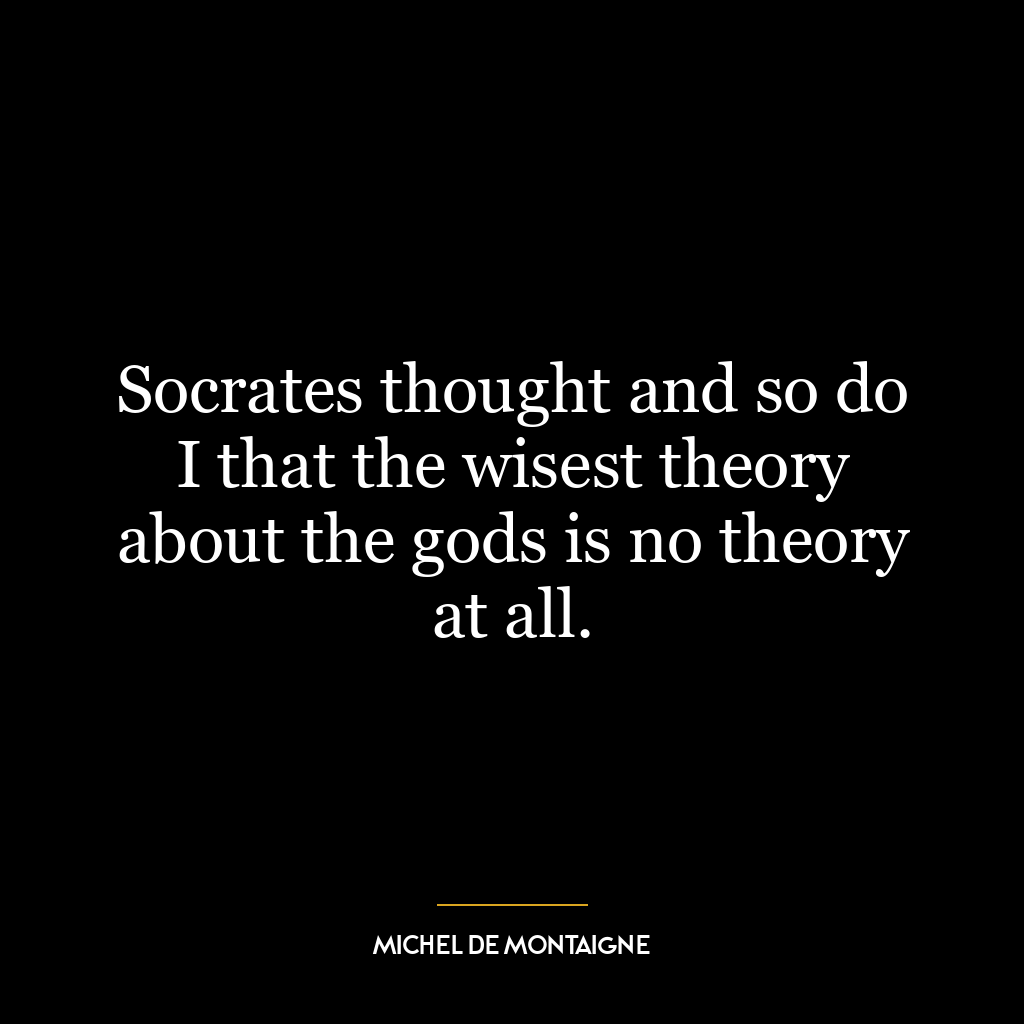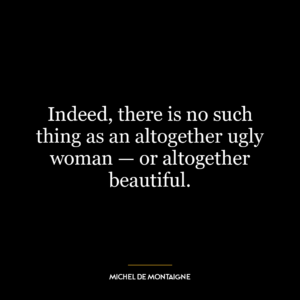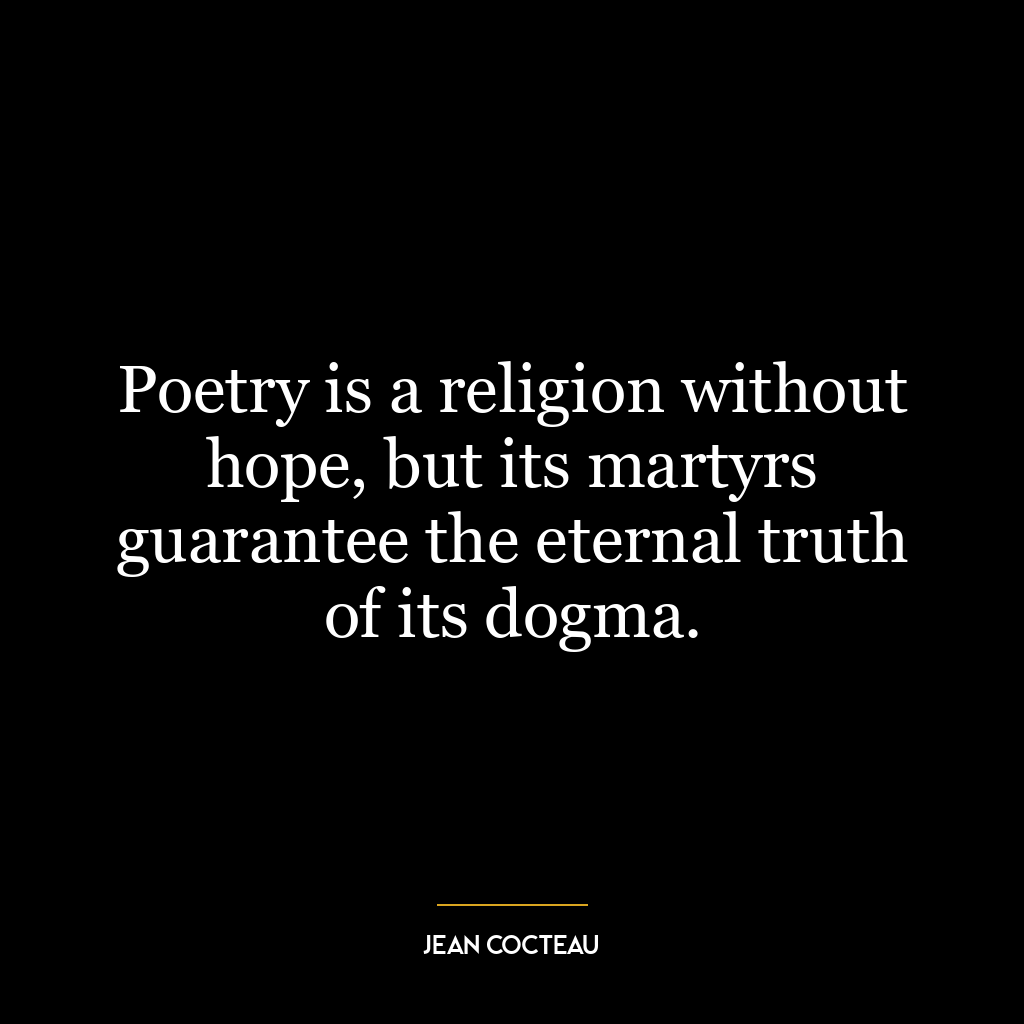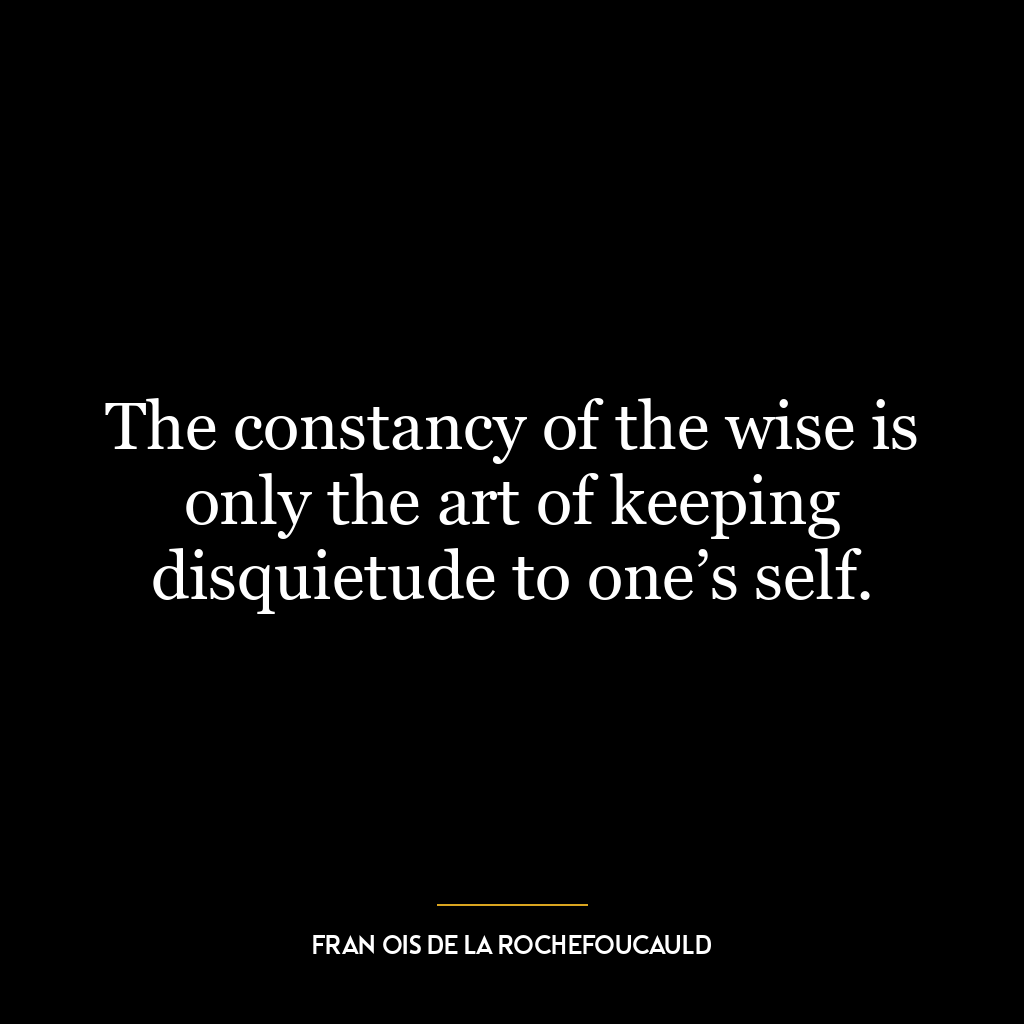Socrates thought and so do I that the wisest theory about the gods is no theory at all.
This quote suggests that the most profound understanding of the divine or gods does not come from theorizing or intellectualizing, but rather from acknowledging our own limitations in comprehending such transcendental entities. Both Socrates and Montaigne believed that true wisdom lies in recognizing and accepting our ignorance.
When Socrates said, “I know that I am intelligent because I know that I know nothing,” he was emphasizing the importance of humility and continuous learning. Similarly, Montaigne’s quote implies that any theory about gods is bound to be inadequate given our limited human understanding. Instead of trying to define or explain the divine through theories, we should embrace the mystery and remain open to all possibilities.
In today’s world, this idea can be applied in various ways. In science for instance, it reminds us to remain humble despite our advancements and discoveries; there will always be aspects of reality beyond our grasp. It also encourages respect for different beliefs since no single perspective can capture the totality of divine existence.
In terms of personal development, this concept promotes an attitude of openness and curiosity. It discourages dogmatism by reminding us how much we don’t know – thus urging us towards continuous growth and learning. It also fosters tolerance as we realize everyone has their unique interpretation based on their experiences which may differ vastly from ours.
So while theories provide structure and guidance to understand complex concepts like divinity, they should not limit or dictate one’s perception completely – a balance between knowing and unknowing is where true wisdom lies according to both Socrates’ philosophy and Montaigne’s belief.















